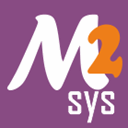Unlocking Your PC's Potential: The Best speedLinux Alternatives
SpeedLinux, a customized coLinux distribution, has long offered a unique solution for running a complete Linux system, including an X server, alongside Windows on a single PC. With its focus on seamless integration and easy updates, it provided a powerful environment for developers and Linux enthusiasts alike. However, as technology evolves, so do the needs and preferences of users. If you're looking for a robust speedLinux alternative to enhance your workflow, explore new functionalities, or simply find a more current solution, you've come to the right place. This guide delves into some of the top contenders that offer similar capabilities, and in some cases, even more, to help you choose the perfect fit.
Top speedLinux Alternatives
Whether you're seeking a lightweight command-line interface, a full-fledged portable operating system, or developer tools that bridge the gap between Windows and Linux, these alternatives provide a diverse range of options to meet your specific requirements.

Cygwin
Cygwin is a powerful Unix-like environment and command-line interface for Microsoft Windows. As a free and open-source solution, it provides excellent native integration of Windows-based applications and data. It's a strong speedLinux alternative for users who need a robust Unix shell and utilities on Windows, offering features like ANSI color support, compatibility layers, portable Linux capabilities, Python, and SSH.

MinGW
MinGW, or "Minimalistic GNU for Windows," is a free and open-source port of the GNU Compiler Collection (GCC) and GNU Binutils. Available for Windows, Linux, and BSD, it provides a complete programming toolset, making it an excellent speedLinux alternative for developers. Its key features include a powerful compiler and general developer tools, all in a portable package.

MSYS2
MSYS2 is a free and open-source independent rewrite of MSYS, built upon modern Cygwin (a POSIX compatibility layer) and MinGW-w64. Designed for better interoperability with native Windows, it's a fantastic speedLinux alternative for those seeking a development environment with regular updates, a command line/bash interface, and IDE integration on Windows.

Knoppix
Knoppix is a free and open-source Debian-based operating system designed to run directly from a CD/DVD (Live CD) or USB key (Live USB). As one of the first of its kind, Knoppix offers a portable Linux experience, making it a compelling speedLinux alternative for users who prioritize booting from USB, a full operating system experience, portable Linux capabilities, and privacy-focused features.

TCC/LE
TCC/LE is a freemium CMD replacement for Windows that offers extensive compatibility with existing Windows command prompts and batch files while introducing thousands of new features. If you primarily used speedLinux for its command-line capabilities and scripting, TCC/LE provides a highly enhanced and feature-rich command-line environment for Windows users.

Cooperative Linux
Cooperative Linux (coLinux) is the foundational technology behind speedLinux itself. As the first working free and open-source method for optimally running Linux on Microsoft Windows natively, it remains a direct speedLinux alternative. While the JSON data indicates "No features added" specifically for this entry, its core functionality as a co-operative Linux environment on Windows is its primary feature, allowing a direct comparison for those who appreciated speedLinux's underlying architecture.

Portable Ubuntu Remix
Portable Ubuntu Remix offers a portable image of Ubuntu designed to run as a native Win32 application in Windows. This free and open-source solution adds the capability to execute Linux applications and integrate with the Windows environment seamlessly. For users who valued speedLinux's ability to run a complete Linux system portably on Windows, Portable Ubuntu Remix is an excellent, direct alternative.
Ultimately, the best speedLinux alternative for you will depend on your specific needs, whether that's a lightweight command-line interface, a full development environment, or a portable Linux experience. Explore these options, consider their unique features, and find the perfect fit to enhance your computing.